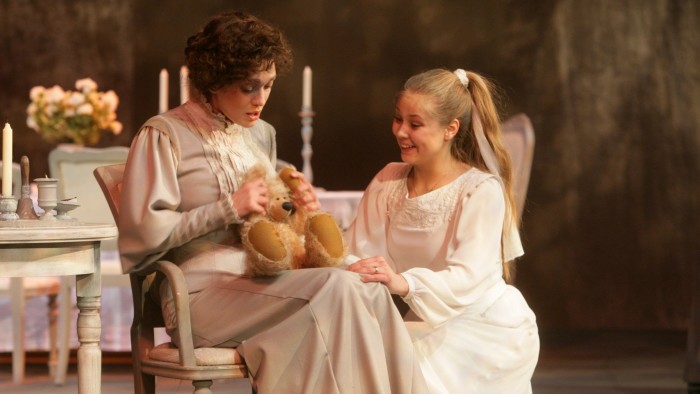Three Sisters, Piccadilly Theatre, London — authentic

Simply sign up to the Life & Arts myFT Digest -- delivered directly to your inbox.
Russian drama, performed in Russian. Such was the premise of the Sovremennik’s last outing to London, in 2011, when the renowned Moscow company took to the stage in the West End with The Cherry Orchard, Three Sisters and the gulag drama Into the Whirlwind. So it was a shame, this time round, that Three Sisters (much praised in 2011) was the only Russian play of its London residency, the other two being adaptations of German and American works.
Founded during the post-Stalin thaw of the late 1950s and headed since 1972 by artistic director Galina Volchek, the Sovremennik boasts of its account of Three Sisters being a seminal interpretation of Chekhov’s classic drama of thwarted hopes.
Certainly, like any Russian theatre, it can lay claim to Chekhovian authenticity. One quibble with many English-language productions is that the playwright’s doomed gentry simply don’t look or sound like the social class he depicted wilting away in their Russian country estates; instead they tend to translate into plummy Edwardians with a Merchant-Ivory sheen. This Three Sisters offered Londoners a rare chance to see — or rather hear — Chekhov as experienced by a native audience.
Russian has a quality often glossed over in translation — both more abrupt than English and more accommodating of sentimentality. In this staging, it sounded not only bawdier, but more drunken. However, some of the humour was lost in the English surtitles, which occasionally slipped out of sync with the spoken dialogue, flashing up a little too early and missing that crucial second or two of comic timing.
As the youngest sister Irina, Victoria Romanenko was the heart and soul of the play, buffeted from dancing with joy to howling in despair when her dreams of escaping to Moscow are shattered. Her sister’s lover, Vershinin, cautions her that “happiness is something we never have, only wish for”. It’s a lesson Irina learns later in the play: life, she cries, “has strangled us like a weed”. By contrast, the elder sisters Masha and Olga (Alyona Babenko and Olga Drozdova) are more grounded, world-weary and already broken by disillusionment.
The set design was captivating: a bridge arced above the stage like a rainbow, transcending the sisters’ earthbound existence, a pulpit from which to preach lofty sentiments — yet also a bridge to nowhere. Under it, a revolving stage that spun alarmingly fast pitched the sisters into a swirl of disorientation.
Comments